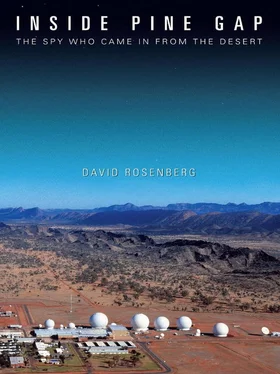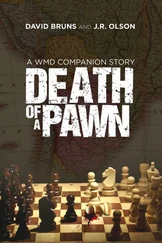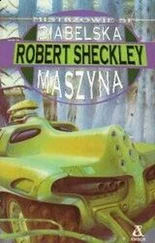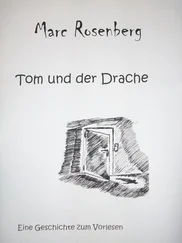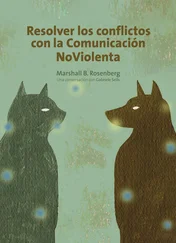In addition to this, a Security representative requested that I relinquish my computer hard drive and any other storage media that may have contained classified information after I completed the final draft and deleted these classified documents from these media. I was told that my draft was classified ‘Top Secret—SI/TK’ [3] http://en.wikipedia.org/wiki?title=Talk:Classified_information
and that my hard drive might still contain remnants of these documents that could be accessed through the internet or if the hard drive was later sold as part of my computer. I agreed to this as a necessary part of the security process. When the meeting concluded, I signed another document that took away my temporary security clearance, and a few hours later I flew back to Sydney.
Four weeks after my meeting in the vault, I received a final spreadsheet with a list of 245 objections to material that the various PRBs considered classified. I have rephrased many portions of the book to make these passages unclassified, so if a story appears to be vague, this is due to the constraint of classification guidance. I have retained as much of the classified aspects of each story as possible, but where not possible, or to indicate that there was more to the story, I have blacked out these portions.
The Australian Government also requested the removal of certain passages, and although I am now an Australian citizen, I didn’t work for the Australian Government while at Pine Gap, I was not an Australian citizen at that time, nor did I hold an Australian security clearance, so I was under no legal requirement to seek the Australian Government’s approval to publish. However, I did in the end modify or remove passages that the Australian Government identified as sensitive. I believe it is not my place to discuss any Australian security-related subject that I was exposed to while employed at Pine Gap that the Australian Government identified as objectionable, even though some of this information is available in open-source repositories.
The PRB required resubmission of my manuscript after I had edited it, although I cited some passages that I believed were unclassified and requested that they remain as written. Again, there were prolonged delays as I was informed via many emails that the NSA had no control over how long the other agencies would take to complete their review. After sixty-two days of silence, I informed the chief of the PRB that I had consulted with US attorney Mark Zaid about the excessive delays and the redaction of information that is available to the general public. To the PRB, I voiced my concerns that if I was not provided with suggested changes by 21 September I would interpret this as explicit concurrence from the PRB authorising me to submit the manuscript to my agent and publisher. One week later, I received a phone call from Security at Pine Gap informing me that all but one agency would have their feedback to me by the specified date, and this did happen.
Eventually, on 2 October, the PRB emailed me the final spreadsheet of its objections, which numbered about a hundred. I lightly rewrote much of this to remove the objectionable material, but decided to formally challenge the ruling of about fifty objections, including some direct quotes found in open sources. I did this through the NSA chief of staff, who replied to me on 25 November, almost one year since I had mailed my original manuscript to the PRB. I was pleased to discover that she concurred with most of my arguments, approving for publication almost 80 per cent of what the PRB had initially stated was classified. The end result is this book—an unclassified collection of stories that have exposed, examined and explained some of the classified missions performed at Pine Gap.
Despite my frustrations, I wish to express my appreciation to the individuals in the various PRBs who reviewed my manuscript and provided the feedback required to make this book unclassified and not damaging to US and Australian security concerns and intelligence collection capabilities. Those I spoke with in the PRB were always professional, apologising for the excessive delays and promising to have a result back to me as soon as possible. Finally, just over one year after mailing my original draft to the PRB, I was able to hand my manuscript over to my publisher.
Perhaps it is now time for a review of the current US federal court thirty-day ruling, which is in place regardless of the length of a manuscript, is apparently completely disregarded by the various PRBs and is not enforced by the justice system. The ruling applies equally to a one-page document and a 300-page work of non-fiction. This is not equitable. Rather, using word length as a basis for determining the number of working days to be allotted to the review process seems to be a more appropriate way to guide, by legal mandate, the PRB to realistically fulfil its obligation in a reasonable amount of time. This change would maintain the balance between national security concerns and an author’s right to freedom of speech, which would still be preserved, allowing the PRB to complete its review in a timeframe that is fair to both the PRB and prospective authors.

APENDIX A—THE PRE-PUBLICATION REVIEW BOARD (PRB)
The high-level security clearance I held with the United States Government placed me under a lifetime obligation to submit anything that may contain classified information to the PRB at the NSA before general publication. The CIA’s website contains a page discussing the pre-publication review process in great detail, providing potential authors with techniques and guidance to help them write an unclassified version of their story while preserving the main points of the classified information. [1] https://www.cia.gov/library/center-for-the-study-of-intelligence/kent-csi/docs/v41i3a01p.htm
I found this website incredibly helpful in guiding me to tell ‘top secret’ true stories in an unclassified way without eliminating the classified focus. The NSA website does not currently provide similar guidance to former employees.
I was quite impressed that the CIA was not discouraging former officers within the intelligence community from relating their experiences to the general public. Times certainly have changed! For example, the website referenced a court decision involving the aforementioned Victor Marchetti. The decision stated ‘that Marchetti [read any CIA author] “may not disclose classified information obtained by him during the course of his employment which is not already in the public domain ” (Marchetti at 1317; emphasis added). The court also stated that, “Information, though classified, may have been publicly disclosed. If it has been, Marchetti [read any former CIA author] should have as much right as anyone else to republish it”.’ [2] ibid.
‘An author may republish information if he or she can cite open sources for the same information.’ [3] McGehee v. Casey, 718 F.2d 1141 (D.C. Cir. 1983)
When this type of government intelligence information is published by a former CIA or NSA officer, it tends to confirm the open-source publication but does not constitute official acknowledgement. ‘Allowing something to be published unofficially by a private citizen (even a recently resigned CIA officer) is not declassifying it.’ [4] https://www.cia.gov/library/center-for-the-study-of-intelligence/kent-csi/docs/v41i3a01p.htm
‘The courts have made clear that statements made by a former (government) employee, regardless of rank, does not constitute official release or acknowledgment.’ [5] ibid.
Hence I am allowed to discuss portions of the classified mission performed at Pine Gap, but the details I relate are not considered to have been officially confirmed as accurate by either the US or Australian governments.
Читать дальше
